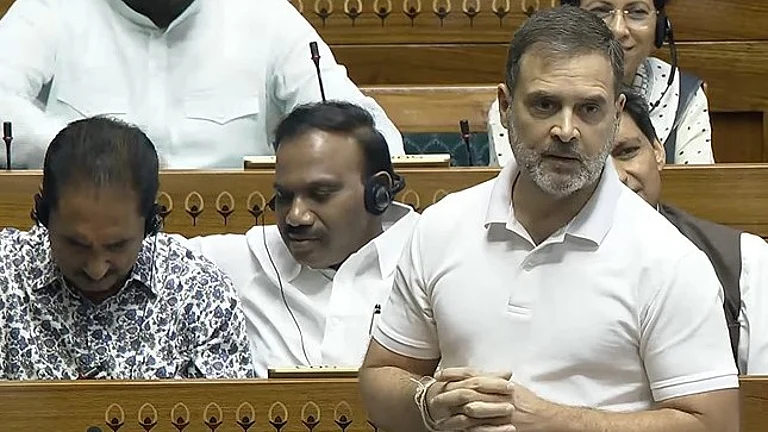A people's movement is brewing in Eastern Nagaland where over four lakh voters are believed to have abstained from voting in the first phase of the general elections last Friday. The mass boycott resulted in a significant dip in voter turnout, from 83 per cent in 2019 to 56.91 per cent this time.
The movement, led by the Eastern Nagaland People's Organisation (ENPO), seeks the creation of a separate territory called "Frontier Nagaland," with its own legislature, executive, and financial powers.
On Friday, the organisation declared a public emergency after their long-standing demand remained unfulfilled despite several rounds of discussions with the Union Home Ministry.
The state of Nagaland has historically been associated with many uprisings, rebellions and insurgency movements even before India became independent.
Formation of Nagaland
When India gained independence in 1947, the Naga territory was part of Assam. However soon after, a strong nationalist movement stirred, aiming to unite the Naga tribes. Some extremists even demanded complete secession from India.
In 1955, the situation escalated when the Naga National Council (NNC), the first organised Naga political force, took up arms. This led to the Indian government targeting the NNC, forcing many of its leaders to go underground. To restore order, the Indian army was called in, and counter-insurgency operations were launched
In 1957, an agreement was reached between Naga leaders and the Indian government, leading to the creation of a single, separate region called the Naga Hills. The agreement brought together the Naga Hills region of Assam and the Tuensang frontier division made it a Union Territory directly administered by the Central government.
It was in 1960 that a 16 Point Agreement was signed between the Naga People's Convention (NPC) and the Government of India paving the way for the establishment of the state of Nagaland in 1963. A democratically elected government assumed office in 1964.
Rebel activity in Nagaland, often driven by tribal rivalries and personal vendettas continued for decades after the formation of the state. President’s rule was imposed in 1975 and some rebels agreed to lay down arms in 1975, while a small group continued to rebel. The National Socialist Council of Nagaland, formed in 1980, split into two factions in 1988. The dominant faction negotiated a ceasefire in 1997. Despite the ceasefire, the violence continued.
The Eastern tribes’ movement started churning in the early 2000s with calls for establishment of a separate territory due to alleged developmental negligence.
Eastern States’ demand for a separate territory
The Eastern Nagaland comprising – Tuensang, Mon, Longleng, Kiphire, Noklak and Shamator – has been calling for the creation of a separate territory for over more than a decade, citing a “development deficit” in the region. The districts are mainly inhabited by Konyak, Phom, Chang, Yimchunger, and Khiamniungan tribes.
Eastern Nagaland residents allege exploitation by the dominant western tribes since Nagaland's formation with state funds and resources not reaching them. ENPO believes independence would make them primary resource beneficiaries and would be key in reforming their identity absent due to western tribe dominance.
The region's underdevelopment can be traced back to its history of exclusion from the British Raj. In 1945, the area was incorporated into the North East Frontier Agency as the Tuensang Frontier Division. Later, this division was amalgamated with the Naga Hills District of Assam to create the Naga Hills Tuensang Area, an administrative unit.
This is not the first time the ENPO has called for abstention from voting. In February last year a similar call was made in the lead up to the Assembly polls but was later withdrawn when the Ministry of Home Affairs assured action.
However, when their demands were ignored, they chose to boycott the Lok Sabha elections 2024.




























